





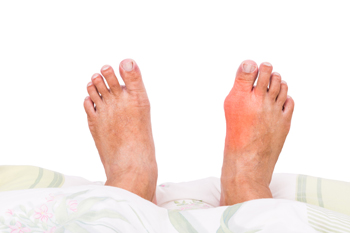 An excess of uric acid levels in the blood may lead to a painful condition known as gout. When the body has difficulty in processing this buildup, crystals will typically form in the joint of the big toe. It is often considered to be a form of arthritis, and may cause considerable pain and discomfort. This ailment may develop as a result of ingesting foods that are rich in purines, which may often include red wine, seafood or chocolate. Research has shown there may be several predispositions for gout to occur. People who have high blood pressure or who have abnormal kidney functions may be at a greater risk to develop this ailment. Patients who are afflicted with gout are aware of the intense pain, swelling and redness that accompanies this predicament. If you have developed gout it's suggested to consult with a podiatrist who can provide valuable information about the treatment of this debilitating condition.
An excess of uric acid levels in the blood may lead to a painful condition known as gout. When the body has difficulty in processing this buildup, crystals will typically form in the joint of the big toe. It is often considered to be a form of arthritis, and may cause considerable pain and discomfort. This ailment may develop as a result of ingesting foods that are rich in purines, which may often include red wine, seafood or chocolate. Research has shown there may be several predispositions for gout to occur. People who have high blood pressure or who have abnormal kidney functions may be at a greater risk to develop this ailment. Patients who are afflicted with gout are aware of the intense pain, swelling and redness that accompanies this predicament. If you have developed gout it's suggested to consult with a podiatrist who can provide valuable information about the treatment of this debilitating condition.
Gout is a foot condition that requires certain treatment and care. If you are seeking treatment, contact one of our podiatrists from Active Foot and Ankle Care, LLC. Our doctors will treat your foot and ankle needs.
What Is Gout?
Gout is a type of arthritis caused by a buildup of uric acid in the bloodstream. It often develops in the foot, especially the big toe area, although it can manifest in other parts of the body as well. Gout can make walking and standing very painful and is especially common in diabetics and the obese.
People typically get gout because of a poor diet. Genetic predisposition is also a factor. The children of parents who have had gout frequently have a chance of developing it themselves.
Gout can easily be identified by redness and inflammation of the big toe and the surrounding areas of the foot. Other symptoms include extreme fatigue, joint pain, and running high fevers. Sometimes corticosteroid drugs can be prescribed to treat gout, but the best way to combat this disease is to get more exercise and eat a better diet.
If you have any questions please feel free to contact our offices located in Fair Lawn, Riverdale, and Englewood, NJ . We offer the newest diagnostic and treatment technologies for all your foot and ankle needs.
Read more about Everything You Need to Know About Gout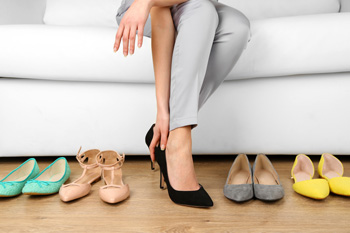 Despite the fact that many women enjoy wearing high heels, they may want to be aware of the potential damage wearing these types of shoes may cause. The toes may endure increased pressure, and this may specifically occur under the big toe. If you are susceptible to bunions, this may result in the formation of one, in addition to the development of corns and calluses, which may typically form on the balls of the feet or on top of the toes. Pain affecting the heel of the foot may be related to a condition known as plantar fasciitis. This may occur when the band of tissue on the bottom of the foot that connects the heel to the toes becomes inflamed, and severe pain and discomfort may often accompany this condition. Research has shown that regardless of the ailments that may develop as a result of wearing high heels, a large percentage of women choose to wear this type of shoe.
Despite the fact that many women enjoy wearing high heels, they may want to be aware of the potential damage wearing these types of shoes may cause. The toes may endure increased pressure, and this may specifically occur under the big toe. If you are susceptible to bunions, this may result in the formation of one, in addition to the development of corns and calluses, which may typically form on the balls of the feet or on top of the toes. Pain affecting the heel of the foot may be related to a condition known as plantar fasciitis. This may occur when the band of tissue on the bottom of the foot that connects the heel to the toes becomes inflamed, and severe pain and discomfort may often accompany this condition. Research has shown that regardless of the ailments that may develop as a result of wearing high heels, a large percentage of women choose to wear this type of shoe.
High heels have a history of causing foot and ankle problems. If you have any concerns about your feet or ankles, contact one of our podiatrists from Active Foot and Ankle Care, LLC. Our doctors can provide the care you need to keep you pain-free and on your feet.
Effects of High Heels on the Feet
High heels are popular shoes among women because of their many styles and societal appeal. Despite this, high heels can still cause many health problems if worn too frequently.
Which Parts of My Body Will Be Affected by High Heels?
What Kinds of Foot Problems Can Develop from Wearing High Heels?
How Can I Still Wear High Heels and Maintain Foot Health?
If you want to wear high heeled shoes, make sure that you are not wearing them every day, as this will help prevent long term physical problems. Try wearing thicker heels as opposed to stilettos to distribute weight more evenly across the feet. Always make sure you are wearing the proper shoes for the right occasion, such as sneakers for exercising. If you walk to work, try carrying your heels with you and changing into them once you arrive at work. Adding inserts to your heels can help cushion your feet and absorb shock. Full foot inserts or metatarsal pads are available.
If you have any questions please feel free to contact our offices located in Fair Lawn, Riverdale, and Englewood, NJ . We offer the newest diagnostic and treatment technologies for all your foot and ankle needs.
Read more about Effect of High Heels on the Feet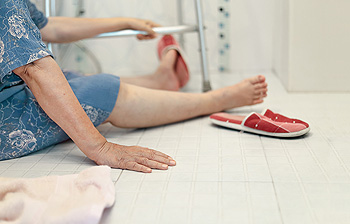 It is common for many elderly people to suffer from general foot conditions including blisters and ingrown toenails. This may be a result of improper foot care that is not executed. Many seniors may have difficulty in trimming their toenails. Therefore, it may be beneficial to have a caretaker perform the proper tasks that will maintain good foot health. When the toenails are clean and the skin is moisturized, the chances of certain foot conditions developing may be diminished. Daily foot and nail hygiene may include trimming the toenails short using nail clippers, in addition to buffing the nails thus providing a smooth finish to the nail. This may prevent painful and uncomfortable ingrown toenails from developing. It's important to consult with a podiatrist for any concerns you may have on how to take proper care of elderly feet.
It is common for many elderly people to suffer from general foot conditions including blisters and ingrown toenails. This may be a result of improper foot care that is not executed. Many seniors may have difficulty in trimming their toenails. Therefore, it may be beneficial to have a caretaker perform the proper tasks that will maintain good foot health. When the toenails are clean and the skin is moisturized, the chances of certain foot conditions developing may be diminished. Daily foot and nail hygiene may include trimming the toenails short using nail clippers, in addition to buffing the nails thus providing a smooth finish to the nail. This may prevent painful and uncomfortable ingrown toenails from developing. It's important to consult with a podiatrist for any concerns you may have on how to take proper care of elderly feet.
Proper foot care is something many older adults forget to consider. If you have any concerns about your feet and ankles, contact one of our podiatrists from Active Foot and Ankle Care, LLC. Our doctors can provide the care you need to keep you pain-free and on your feet.
The Elderly and Their Feet
As we age we start to notice many changes in our body, but the elder population may not notice them right away. Medical conditions may prevent the elderly to take notice of their foot health right away. Poor vision is a lead contributor to not taking action for the elderly.
Common Conditions
Susceptible Infections
Diabetes and poor circulation can cause general loss of sensitivity over the years, turning a simple cut into a serious issue.
If you have any questions please feel free to contact our offices located in Fair Lawn, Riverdale, and Englewood, NJ . We offer the newest diagnostic and treatment technologies for all your foot and ankle needs.
Read more about Elderly Foot Care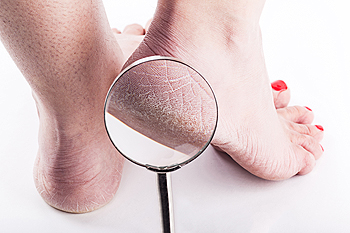 If you have ever experienced a foot condition that is known as cracked heels, you may be aware of the pain and discomfort that is often associated with it. The skin on the heels often becomes dry and hardened, and this typically indicates that the condition is beginning to develop. There may be several causes for this to occur, including a predisposition to skin conditions, which may include psoriasis or eczema, or other medical maladies such as diabetes or thyroid concerns. If the patient is diabetic, the cracks or fissures may not be felt, which may be due to a condition that is referred to as diabetic neuropathy. This may cause a lack of sensation and any pain and discomfort that is present may not be noticed. If you feel you are developing cracked heels, it’s important to confer with a podiatrist who can advise you on how to properly treat this condition, which may be helpful in attaining maximum comfort.
If you have ever experienced a foot condition that is known as cracked heels, you may be aware of the pain and discomfort that is often associated with it. The skin on the heels often becomes dry and hardened, and this typically indicates that the condition is beginning to develop. There may be several causes for this to occur, including a predisposition to skin conditions, which may include psoriasis or eczema, or other medical maladies such as diabetes or thyroid concerns. If the patient is diabetic, the cracks or fissures may not be felt, which may be due to a condition that is referred to as diabetic neuropathy. This may cause a lack of sensation and any pain and discomfort that is present may not be noticed. If you feel you are developing cracked heels, it’s important to confer with a podiatrist who can advise you on how to properly treat this condition, which may be helpful in attaining maximum comfort.
If the skin on your feet starts to crack, you may want to see a podiatrist to find treatment. If you have any concerns, contact one of our podiatrists from Active Foot and Ankle Care, LLC. Our doctors can provide the care you need to keep you pain-free and on your feet.
Cracked Heels
It is important to moisturize your cracked heels in order to prevent pain, bleeding, and infection. The reason cracked heels form is because the skin on the foot is too dry to support the immense pressure placed on them. When the foot expands, the dry skin on the foot begins to split.
Ways to Help Heal Them
Ways to Prevent Cracked Heels
If you are unsure how to proceed in treating cracked heels, seek guidance from a podiatrist. Your doctor will help you with any questions or information you may need.
If you have any questions, please feel free to contact our offices located in Fair Lawn, Riverdale, and Englewood, NJ . We offer the newest diagnostic and treatment technologies for all your foot care needs.
Read more about Solutions for Cracked Heels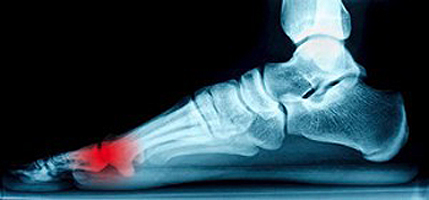 The sesamoid bones are located in the tendon that aids in moving the big toe. One of the several functions of these types of bones is to help support the body’s weight. If the area surrounding these particular bones should become inflamed, a condition that is referred to as sesamoiditis may occur. This may be the result of a sudden injury or gradual loss of strength in the bones. The pain is typically felt in the ball of the foot, and the inflammation may extend to the inside of the arch. It may commonly be observed in young people who are physically active, in addition to runners and ballet dancers which may occur due to the amount of force that the sesamoid bones must endure. Some of the symptoms that may be connected with this condition may include bruising, swelling, or difficulty in straightening the big toe. If you feel you may have sesamoiditis, please schedule a consultation with a podiatrist who can provide a correct diagnosis in addition to discussing correct treatment options.
The sesamoid bones are located in the tendon that aids in moving the big toe. One of the several functions of these types of bones is to help support the body’s weight. If the area surrounding these particular bones should become inflamed, a condition that is referred to as sesamoiditis may occur. This may be the result of a sudden injury or gradual loss of strength in the bones. The pain is typically felt in the ball of the foot, and the inflammation may extend to the inside of the arch. It may commonly be observed in young people who are physically active, in addition to runners and ballet dancers which may occur due to the amount of force that the sesamoid bones must endure. Some of the symptoms that may be connected with this condition may include bruising, swelling, or difficulty in straightening the big toe. If you feel you may have sesamoiditis, please schedule a consultation with a podiatrist who can provide a correct diagnosis in addition to discussing correct treatment options.
Sesamoiditis is an unpleasant foot condition characterized by pain in the balls of the feet. If you think you’re struggling with sesamoiditis, contact one of our podiatrists of Active Foot and Ankle Care, LLC. Our doctors will treat your condition thoroughly and effectively.
Sesamoiditis
Sesamoiditis is a condition of the foot that affects the ball of the foot. It is more common in younger people than it is in older people. It can also occur with people who have begun a new exercise program, since their bodies are adjusting to the new physical regimen. Pain may also be caused by the inflammation of tendons surrounding the bones. It is important to seek treatment in its early stages because if you ignore the pain, this condition can lead to more serious problems such as severe irritation and bone fractures.
Causes of Sesamoiditis
Treatment for sesamoiditis is non-invasive and simple. Doctors may recommend a strict rest period where the patient forgoes most physical activity. This will help give the patient time to heal their feet through limited activity. For serious cases, it is best to speak with your doctor to determine a treatment option that will help your specific needs.
If you have any questions please feel free to contact our offices located in Fair Lawn, Riverdale, and Englewood, NJ . We offer the newest diagnostic and treatment technologies for all your foot and ankle needs.






